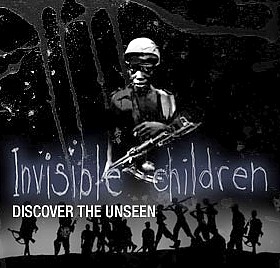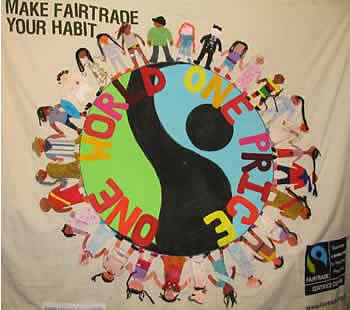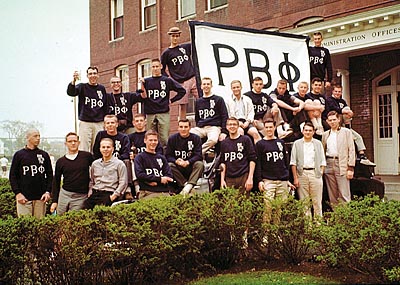 I feel as if there always has been some type of issue in Africa. Either crime and war, or famine, or education. Invisible Children highlights the child army of Joseph Kony and the many lives that have been lost. In total, there have been 966 civilian deaths and 1814 abductions. It's so hard to see those large numbers because we know that this would never happen in America. This year, at DHS, we have been introduced to Invisible Children and have chosen to support and raise money to help the cause, ending Joseph Kony's child army. After watching both videos, hearing Jed Jenkins speak, and exploring the site, I have come to a whole new understanding regarding Invisible Children.
I feel as if there always has been some type of issue in Africa. Either crime and war, or famine, or education. Invisible Children highlights the child army of Joseph Kony and the many lives that have been lost. In total, there have been 966 civilian deaths and 1814 abductions. It's so hard to see those large numbers because we know that this would never happen in America. This year, at DHS, we have been introduced to Invisible Children and have chosen to support and raise money to help the cause, ending Joseph Kony's child army. After watching both videos, hearing Jed Jenkins speak, and exploring the site, I have come to a whole new understanding regarding Invisible Children.The first video we saw at the School Chest presentation was informative and very motivating. To see that this organization has only grown because of teens and young adults is an insane idea. It was three college boys that shared their story to their friends and family. And it was they who spread it around the world, all now helping Uganda and the invisible Children. Now it is Deerfield's turn to spread the word.
The movie in class was also very informative, for it showed us what it was really like in Uganda. It began with the three boys fooling around, but then shifted to the incredibly powerful story of the invisible children. The name "Invisible Children" struck me because these children do seem invisible because no one was listening to Uganada's cries for help to stop Joseph Kony. The childrens' stories were very powerful. They described how they were afraid to stay in their home, afraid of being abducted, afraid of everything. Yet, they were so strong and made new families with other invisible children. And together they fought, and together they ran, and together they cried.
 The site was very helpful and advocates what their mission is. It clearly informs readers of the history behind this cruelty, what is happening today, and how the audience can help. On the home page, near the bottom, different events happening are available. I saw that there were several events per month, showing that this organization is active and always striving to be heard and raise more awareness. I noticed while browsing that there was a link to donate and one of the choices was to donate to the legacy fund which helps send children to school and/or college and rebuild schools and curriculum. I found this really interesting and heart-warming because they took it a step further. Not only is this organization helping save the children from the Joseph Kony army, but they are also trying to re-create their lives and send them to school to be educated. Their protection plan also seems well planned, but a little like wishful thinking. Yes, it would be great to accomplish all of the goals, but it definitely won't happen too quickly unless the number of supporters increases immensely. The protection plan included: protection of communities with the LRA tracker, encouragement of LRA defection with the FM radio soon to be built, the providing of rehabilitation and family reunification, post-conflict recovery, and the promotion of the arrest of Joseph Kony and other LRA leaders. These are high goals that can be achieved some day if the support is still there, but without it nothing can be achieved. I find the LRA tracker to be very effective because it lowers the amount of abductions if people are able to flee from them in time, saving lives. The FM radio also seems very effective because they will be sending out "come home" messages directly to LRA members. This is ultimately what DHS is raising money for and it excites me that we can directly save these childrens' lives. The $15 I donated saved a life. That is so powerful, also contributing to the protection plan. The rehabilitation is necessary because many children have mentally, emotionally, and physically suffered. Rehabilitation is necessary to help them reunite with the community and family. The post-conflict recovery deals with educational purposes, which ensures that these children will have a bright future. Lastly, they promote the arrest of Kony and LRA leaders. If this plan is executed, the children will be protected and saved from the cruelty they should never have to endure.
The site was very helpful and advocates what their mission is. It clearly informs readers of the history behind this cruelty, what is happening today, and how the audience can help. On the home page, near the bottom, different events happening are available. I saw that there were several events per month, showing that this organization is active and always striving to be heard and raise more awareness. I noticed while browsing that there was a link to donate and one of the choices was to donate to the legacy fund which helps send children to school and/or college and rebuild schools and curriculum. I found this really interesting and heart-warming because they took it a step further. Not only is this organization helping save the children from the Joseph Kony army, but they are also trying to re-create their lives and send them to school to be educated. Their protection plan also seems well planned, but a little like wishful thinking. Yes, it would be great to accomplish all of the goals, but it definitely won't happen too quickly unless the number of supporters increases immensely. The protection plan included: protection of communities with the LRA tracker, encouragement of LRA defection with the FM radio soon to be built, the providing of rehabilitation and family reunification, post-conflict recovery, and the promotion of the arrest of Joseph Kony and other LRA leaders. These are high goals that can be achieved some day if the support is still there, but without it nothing can be achieved. I find the LRA tracker to be very effective because it lowers the amount of abductions if people are able to flee from them in time, saving lives. The FM radio also seems very effective because they will be sending out "come home" messages directly to LRA members. This is ultimately what DHS is raising money for and it excites me that we can directly save these childrens' lives. The $15 I donated saved a life. That is so powerful, also contributing to the protection plan. The rehabilitation is necessary because many children have mentally, emotionally, and physically suffered. Rehabilitation is necessary to help them reunite with the community and family. The post-conflict recovery deals with educational purposes, which ensures that these children will have a bright future. Lastly, they promote the arrest of Kony and LRA leaders. If this plan is executed, the children will be protected and saved from the cruelty they should never have to endure.Invisible Children has inspired and has caused me to reflect. I want to go out into the world just like the three teenage boys who founded this organization. I want to make a difference in the world and help those who need help. And by having School Chest support Invisible Children, I can easily start here in Deerfield by donating my money. I hope to some day explore the world and make an impact on others' lives.
http://invisiblechildren.com/
It is up to our generation to help end the war and build hope for these forgotten children.
We make a difference.
























